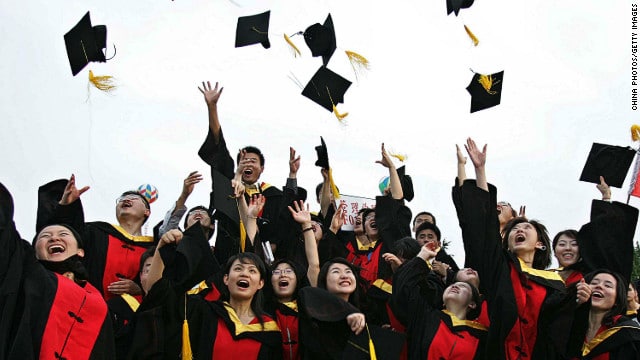This year Duke received a record breaking number of applications from China: over 1,100. This trend is occurring across many of America’s elite universities. Recently, Harvard President Drew Faust spoke with the WSJ to explain their surprising uptick in Chinese students at Harvard.
As a Duke alum, I volunteered to help interview these college hopefuls. After conducting over twenty interviews, I had a good idea of the kind of Chinese students that apply to America’s elite institutions and what they look for in these schools. Chinese students wishing to attend university in the US are a diverse, dynamic and globally minded group. Their educational backgrounds and socioeconomic status vary vastly from one another. The one factor they all shared in common was their fluency in English. Many perfected the language through opportunities in English speaking countries. Some students attended boarding school in the UK, while others participated in one-year exchanges in Singapore. Others took a less traditional route and sought out language programs in parts of Asia such as Indonesia, where tuition and living costs are more affordable.
Besides their fluency in English, these students are also high achievers. They are not high achievers just by means of superior test scores and grades (I was not provided with that information), but rather in regards to their extracurricular accomplishments. They show initiative by founding clubs. They exemplify their leadership through holding positions such as head monitor or president of the class. Some have represented their province in congressional meetings in Beijing or by bearing the torch in the 2008 Olympics. Many of these students think progressively and involve themselves in social movements such as advocating for gay rights. They spend time volunteering in their community and teach in rural parts of China in the summer. They are creative and artistic individuals, winning piano competitions and author books on folktales from their native village. They are athletes with passions for fencing, Japanese kendo and long distance running.
High school students in China who have not reached such a level of high achievement or English fluency should not lose hope in their dream of attending college in America. It took one student nearly a decade after graduating high school to become a qualified candidate. Despite being twenty-eight years old and having taken college courses in China, he hopes to attend an American university this fall.
It did not surprise me that these applicants were so talented and accomplished. After all, they were seeking admissions to Duke, one of the most competitive colleges in the country. What surprised me most was what they were looking for in a school. Yes, academics were important, but students also cared about the quality of life outside of class. Having been part of a stressful and rigorous education system that offers them little opportunity beyond the classroom, Chinese students yearn for an institution that will give them the full college experience. They want to live on a scenic campus, attend sports games and watch music concerts and movies. Some even confessed they’d like to relax and drink beers with friends every now and then.
There was one factor that nearly all the students looked for in their dream American university. Safety. Much of the media coverage that we receive in China about the US is on gun violence. What new incident has happened in the US where a gunman entered a school and harmed it students? Chinese students want to attend a university that will challenge them intellectually and can ensure they will be alive for graduation. Many students even fear that their parents will not let them attend college in America should they receive admissions. It’s not the lofty price that deters them, rather it’s the concern for their safety.
This concern is not just one that stops at the undergraduate level. My friends at Peking University face this issue too when choosing graduate school and study abroad programs. One friend is deciding between graduate school at NYU, Berkeley and Georgetown. He’s leaning towards Georgetown because he thinks DC is safer since President Obama lives there. I’m not kidding. This is really his rationale. Safety is a serious concern and is heavily influencing where China’s brightest students attend school. If American colleges want to attract China’s best, universities must ensure they have topnotch security as well as topnotch academics.


